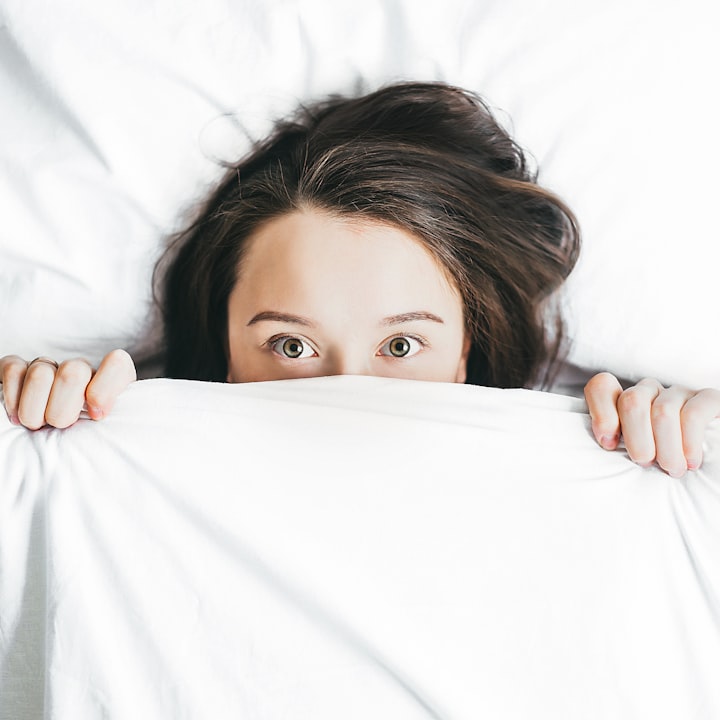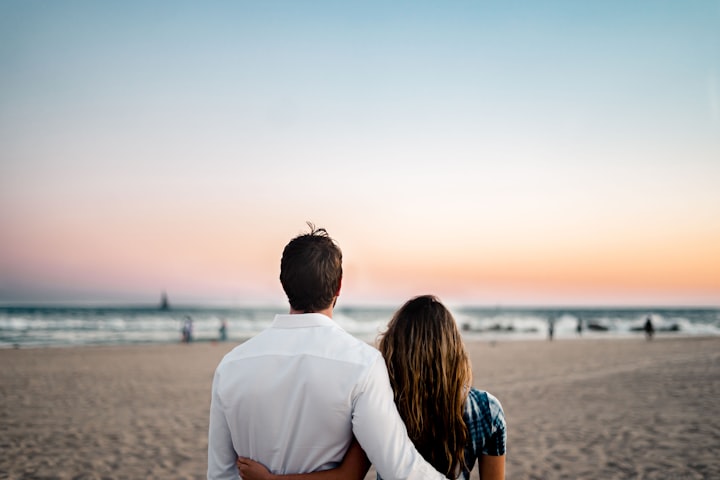I Didn't Know I Had Social Anxiety: Here Are The Subtle Signs
Social anxiety doesn't always look like a fear of public speaking or reclusiveness

Earlier this year, I was diagnosed with Social Anxiety Disorder. It was the last of the 3 anxiety disorders I got diagnosed with, and one that I frankly did not expect. Despite considering myself a mental health advocate and having a fairly good understanding of anxiety disorders, I even fell victim to the stereotypes of social anxiety.
I thought that because I make friends fairly easily, have a good number of friends, and have even done a good amount of public speaking, that I didn't have social anxiety. Sure, I got anxious in social situations and crowds, but I'm naturally introverted, a little shy, and have other anxiety disorders that I attributed to this.
But, after my diagnosis, I began researching Social Anxiety Disorder more, and here's what I discovered: the symptoms are often subtle. Sometimes it can be obvious to the person themselves and others, sometimes it only may show in certain situations, and sometimes the person with social anxiety may disguise it well.
Let's look at some of the subtle symptoms that I exhibited and that others with social anxiety may also show. Though, this is not always obvious to outsiders and to others, it may only be visible to outsiders. If you see yourself in this article, I recommend seeking treatment (if possible) and know that you are not alone in your feelings.
#1: Lack of Eye Contact
While this may seem like a symptom that would be obvious to outsiders, it isn't always. Many people with social anxiety have trained ourselves to look in the general eye area, or simply fake it well. Rarely, do I look anyone directly in the eye, even my loved ones and those I'm completely comfortable with.
Though, eye contact I do make is typically fleeting and meant purely for a polite greeting or to express emotion. During a normal conversation, I'm probably looking at your eyebrows. Or, just not really looking anywhere at all.
#2: Constant Worry About What Others Think
Everyone has insecurities and worries about what other people think of them. So, what is the difference between normal insecurities and worry, and social anxiety? To explain the difference, I think it is best to give a few examples.
First, I tend to leave fairly early in the morning for work. Therefore, I'll wear a sweatshirt and put my hood up to stay warm and honestly just because I'm tired and it's comfortable. Sometimes, even in the warmth of my car, I don't take it down until I'm inside. Nearly every time I did this, I'd get to a stoplight and think, "I wonder what the people in the other cars think? Is it weird to keep my hood up?"
In all honestly, nobody is probably thinking about me beyond the movements of my car. And, even if they do see me, it's not like I'm wearing a Halloween costume, I'm wearing a sweatshirt.
Throughout my life, I've enjoyed expressing myself through clothing. I wear mismatched socks (yes, intentionally, as a 24-year-old), I wear crop tops, and trendy, eye-catching clothing. But, I feel confident in my ability to dress myself and my body. Of course, there is some natural insecurity here, but it is manageable and usually passes.
So, why does a hood matter so much? I don't have the answer.
Another example is that when someone's opinion of me matters (i.e. a boss, friend, family member, significant other's parents, etc), the idea of them talking bad about me, physically hurts. Even if I'm not a fan of that person and don't take their opinion into account much, it still hurts. When they DO actually voice those thoughts or criticisms, it can send me into a depressive spiral (though, they might not see or realize that).
Sometimes, even worse, I do this to myself. My mind will make assumptions about what they thought of me due to small social cues that likely mean nothing (or maybe they were just tired that day). I then become my own worst critic and bully.
#3: Dating Is Difficult
I'm not here to claim that dating is easy for anyone. But, I doubt many people physically shook the first time they went over to a date's place? Yeah, it's a bit embarrassing, and I don't even realize how anxious I am sometimes until I become a perpetually shaking chihuahua that just wants to curl up in their bed under the covers.
There are other contributing factors for why dating is difficult for me that don't have anything to do with my anxiety (or which worsen the anxiety I have around dating). But, after my diagnosis, I began to realize there was more to the story than my trauma, shyness, and general anxiety.
#4: Forced Social Interaction Is Stressful
Many people hate small talk, including me. However, there are times when small talk goes a step further. Such as, you're meeting a new coworker with who you will spend hours every week together and work closely. What happens if you and this person do not get along? What will they think of you? Will they throw off your work and routines? Will they judge how much diet soda you drink to get through the day?
Therefore, until you have the answers to these questions, you cannot fully reveal your true self. There are times when people have to act "fake" in order to survive. While, personally, I hate people who are fake all of the time, I recognize that there is a necessity for it sometimes. But, it is exhausting.
Forced social interactions also extend to events. There are events, meetings, and parties that we cannot simply get out of, but which may include many people we do not know or are not comfortable with. While this can be handled with adequate preparation and when in good mental health, if neither or one of those situations is not present, it can be especially exhausting for someone with social anxiety to keep this up.
It may also cause a flare in symptoms, reclusiveness to recharge, and other similar symptoms. While introverts also need to recharge and social interactions can be exhausting, social anxiety adds an extra layer to this.
So, basically, the moral of this article is: It doesn't matter how social, popular, well spoken, or put together a person may seem, they may silently be struggling with thoughts that lead to major insecurity, unhealthy coping mechanisms, etc.
About the Creator
Alisan Keesee
I am a 26-year-old who lives with my cat. Originally from a small, unincorporated Washington town, I have a penchant for boybands, black coffee, and true crime. I am a graduate of Western Washington University.







Comments (1)
can you give on how to cope with social anxiety